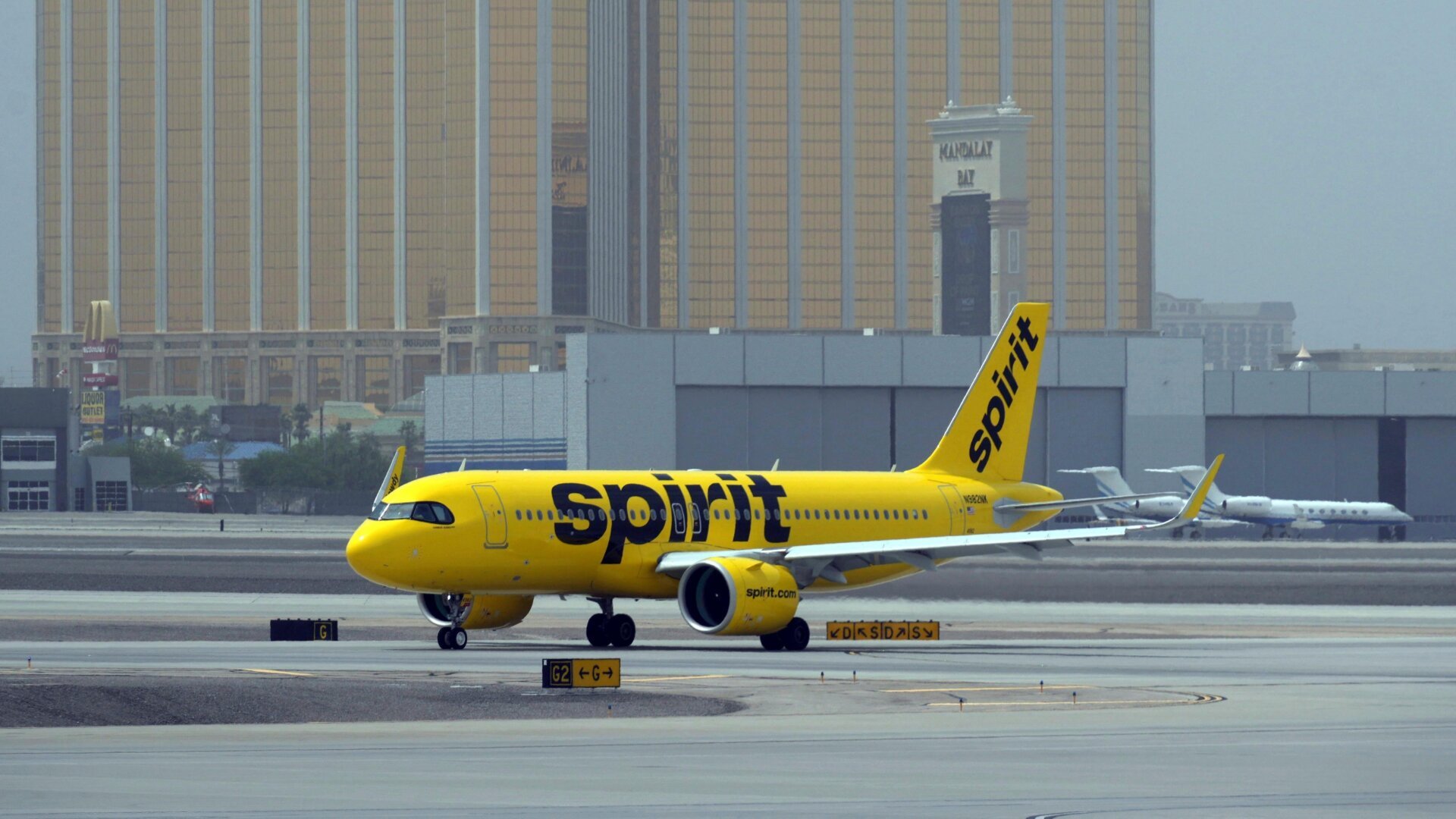Spirit Airlines Admits It Might Not Survive Another Year

Spirit Airlines has just admitted what many suspected: its future is in serious doubt.
The news, delivered in a filing with the Securities and Exchange Commission on August 11, sent the company’s stock into a freefall, plummeting 41% in a single trading session on Tuesday. Spirit’s total market value now sits at a paltry $54.3 million.
In the filing, the ultra-low-cost carrier said there is “substantial doubt” about its ability to continue operating for more than 12 months from the date of its financial statements. Translation: Spirit could disappear by August 2026. The company used the expression “going concern,” which is an official accounting term that a company is forced to use when it is in severe financial distress and may not have enough money to stay in business. It is one of the gravest signals a public company can send to its investors.
The airline — famous for its bright yellow planes and no-frills service — only emerged from Chapter 11 bankruptcy in March after a failed merger with JetBlue. The regulators blocked the merger between the two airlines, arguing that the deal would eliminate a key competitor and drive up fares for consumers. Without the merger, a weakened Spirit was forced to file for Chapter 11 bankruptcy, which it only emerged from in March.
But just months later, Spirit says it’s still in a deep financial crisis.
A Crisis That Won’t Quit
Spirit blames a brutal mix of factors: too much domestic airline capacity, weak demand for leisure travel, and a tough pricing environment that has dragged down revenue. The company reported a $246 million net loss in the second quarter of 2025. In its SEC filing, Spirit said the downturn is expected to last at least through the rest of the year, even after cost-cutting moves like selling spare engines in sale-leaseback deals, reducing discretionary spending, and furloughing pilots in July.
But it hasn’t been enough. The company admitted that its financial results are not improving fast enough to meet the minimum cash requirements of its debt agreements and, crucially, its credit card processing agreement, which expires at the end of the year.
The airline is now in a last-ditch race for liquidity. It is considering selling off planes, real estate, and excess airport gate capacity. It is also in urgent discussions with its credit card processor, which has requested additional collateral to renew their contract, a deal Spirit cannot afford to lose.
Time is running short. Without a dramatic turnaround or a new source of cash, one of America’s best-known budget airlines could soon be grounded for good.



- CỘNG ĐỒNG
- News
- Tech
- Food
- Causes
- Personal
- Art
- Crafts
- Dance
- Drinks
- Film
- Fitness
- Jogos
- Gardening
- Health
- Início
- Literature
- Science
- Networking
- Party
- Religion
- Fashion
- Sports
- Stars
- Xã Hội


